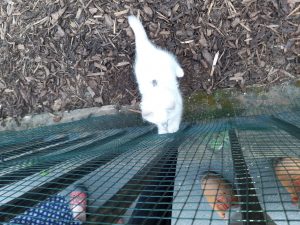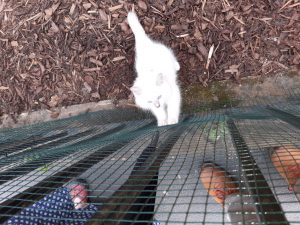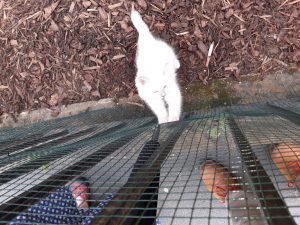Revolutions of all sorts have a common problem. It’s one thing to build popular support for a change, it’s another to actually get the power to create that change, and to make it last. Many of the struggles that underlie the current uprising in the United States are ones that have been going on for multiple lifetimes, in one form or another, and while there have been successes, they’ve often been less than was hoped for or promised, and followed by failures and rollbacks. This wasn’t the post I planned on writing for Juneteenth, but there are lessons from the end of slavery that we would be wise to consider in the context of today’s struggles.
Slavery ended after centuries of uprisings, struggles, and activism. The efforts to address the injustices of slavery were halted almost immediately, and the laws and economy of the United States were arranged to force the Black population to stay as third-class citizens, or to use the prison system to enslave them again. These efforts were accompanied by a generations-long campaign of terrorism and pogroms waged by the white population against the black population, led by the KKK, and supported by many who never wore a white hood. Along with that came an intensification of the anti-black propaganda that had been used to justify slavery, and was now served to justify any and all injustices perpetrated against the Black population.
It is very, very hard to take any power from the powerful. For all people like to talk about how the wealth of today’s billionaires is somehow fictional because it’s mostly tied up in stocks, the difficulty of getting changes that put even a fractional amount more power in the hands of the people shows just how real their fortunes are. They really do wield Feudal levels of power and influence, on a global scale, and they are prepared, as they always have been, to use that to hold on to what they view as “theirs”, and to create a society in which each of the lower tiers of power take that same approach to whatever lesser degrees of power they can attain.
That dynamic is why so many have taken the path of bloody revolution. Any minor gains made are rolled back by the power that is left to the aristocracy, as they dream about how much more power they used to have. It’s not hard to feel that the only solution is to take away all of their power, and to take away their lives, either through death or through imprisonment. I don’t want that, I just don’t want them to have any more power than anyone else. I want democracy. I want a system in which accumulating personal wealth isn’t necessary to pursue a fulfilling life. I want a system in which accumulating personal power is either impossible, or close to it.
We’re a long, long way off from that. I believe it’s attainable, but it seems so far away that I doubt it will be achieved in my lifetime. That means that we’re in this for the long haul. Even if we make changes that are big enough and fast enough to head off the worst horrors of a warming planet, we will need to hold that ground, not just against the capitalists seeking to regain their hegemony, but also against an increasingly hostile planet. Climate change has been described as a “threat multiplier”, and I think that will prove true for the threat posed by the aristocrats and oligarchs of the world as much as any other.
The struggle against white supremacy is inextricably tied up in the struggle against global capitalism. The two are used to reinforce each other, as they have been for centuries. The working classes are powerful too, because there are more of us, and because we form the foundations of the power of the aristocracy. In a very simplistic equation, we have more power, but it’s harder to use. The wealth of the “elites” is a ranged weapon that can be used without real risk to its wielder. They pay others to take their risks. The power of the working class is in our hands, and while we can use it to achieve great things, the risks we take are our own. A punch can be effective, but it can easily injure the one who throws it. That’s what creates the imbalance – using our power comes at a greater cost, and greater risk, and that creates an imbalance.
Part of that power imbalance is the way the corporate media will largely ignore uprisings or protests until there’s violence involved, and then they’ll focus on the violence until someone decides it’s not “new” enough. It feels like coverage has already started to shift away from the efforts for real change, and politicians who are supposedly on “our side” have started declaring victory due to the promise of very minor reforms. The weight of society is set against change, and while sometimes it can feel as if we’ve gained momentum, we’re still engaged in an uphill struggle. For those of us who want to realize the dream of democracy and justice for all, I think it will always be an uphill struggle, as there will always be some trying to control others, at every scale of society. As the protests dwindle, and fade away, there will be a concerted effort by some to claim that they “won” and so there’s no need for more protests in the future, and by others that they “lost” and so all future protests are doomed to failure or unpopular. The general refrain is always that while past struggles for change might have been justified and good, present and future ones are almost always bad, unpopular, and the work of extremists.
Hopefully this will result in more sustainable change and activism than the first wave of the Black Lives Matter movement, and understanding what’s going on from a systemic perspective should help us make that happen. This video takes an analytical look at movements, the predictable patterns in how they progress, and how to use that knowledge to guide our efforts.
This pattern can be found not just in the short-term uprisings seen through things like Occupy Wall Street or Black Lives Matter, but also in much longer time frames. Today we celebrate one of the greatest victories in the centuries-long fight for freedom, justice, and equality. Not the end of the the American Civil War, or the Emancipation Proclamation that helped win it, but the end of industrialized, birthright slavery in the United States. It was not a total victory, but it moved us closer to justice, and made possible the victories gained since, and those still to come.
Unfortunately, life costs money, and my income from this blog has yet to meet minimum wage for the time I put into it. If you can afford to, please consider pledging a couple dollars per month or so through my Patreon. This will help me continue creating and improving this blog by keeping a roof over my head, and food in my carnivorous pets so they don’t eat me. Crowdfunding requires a crowd, so if you can pitch in a little, it would help a great deal!





